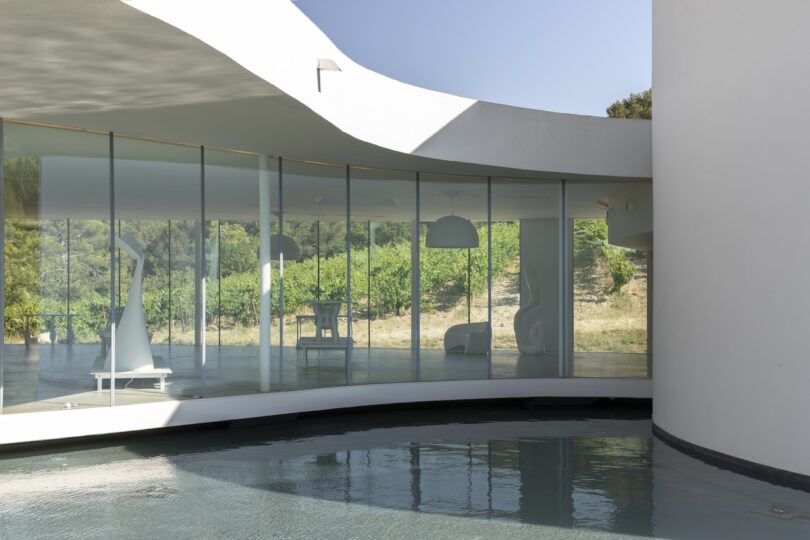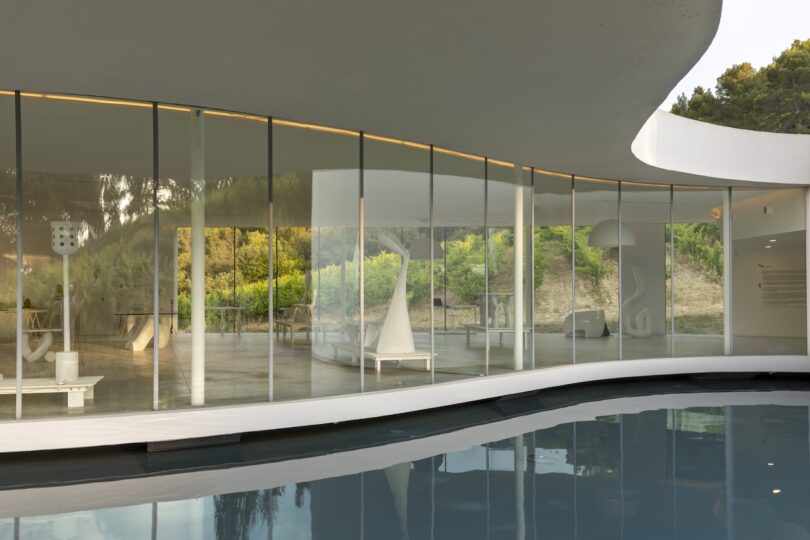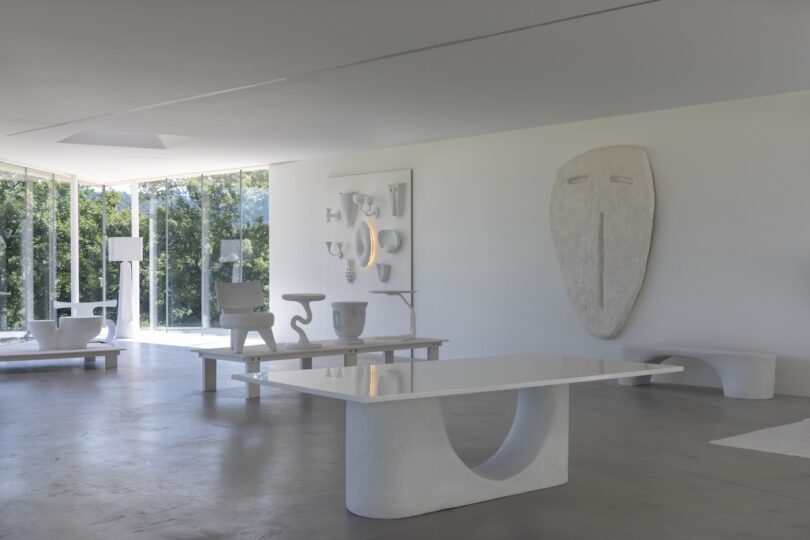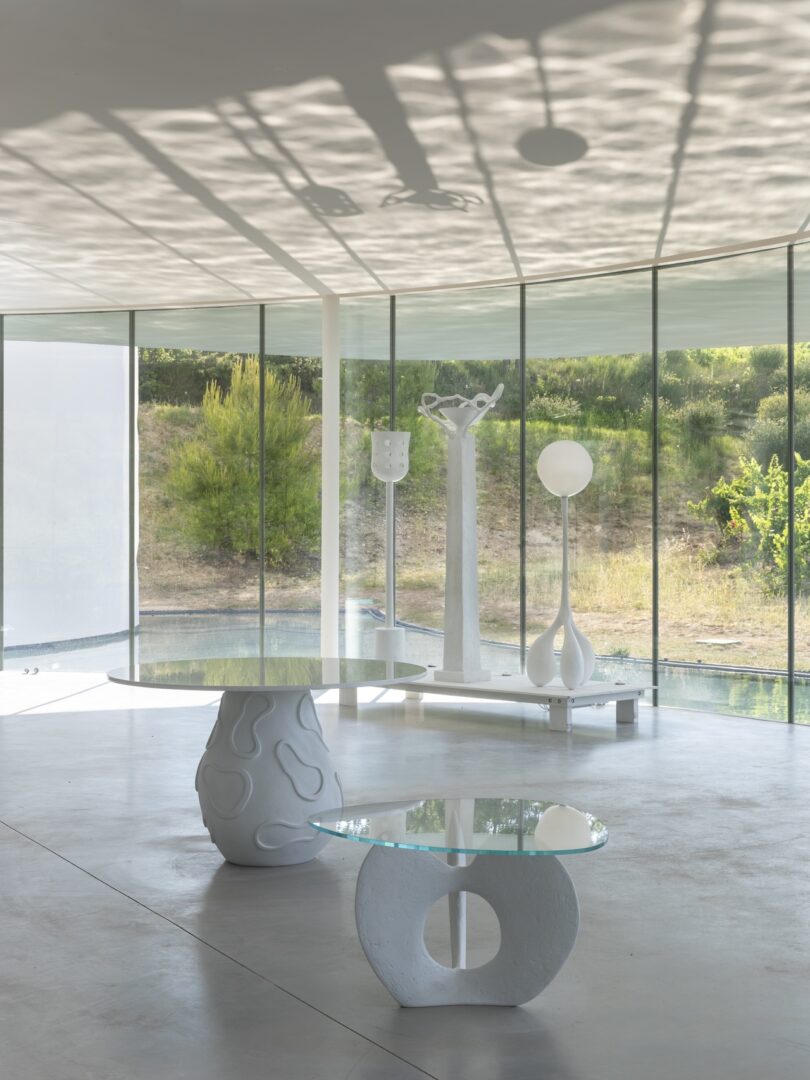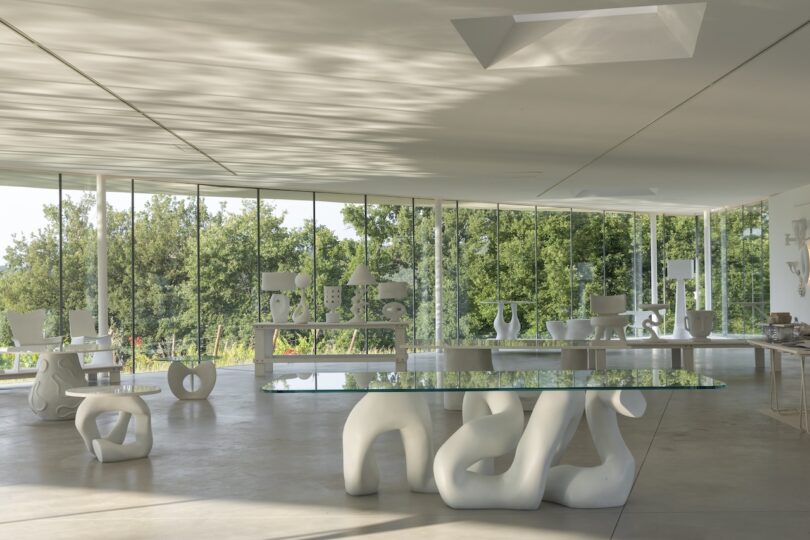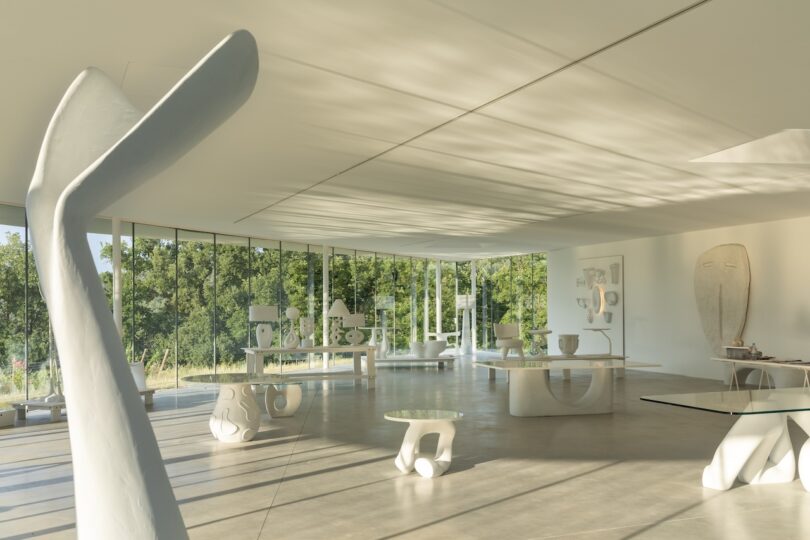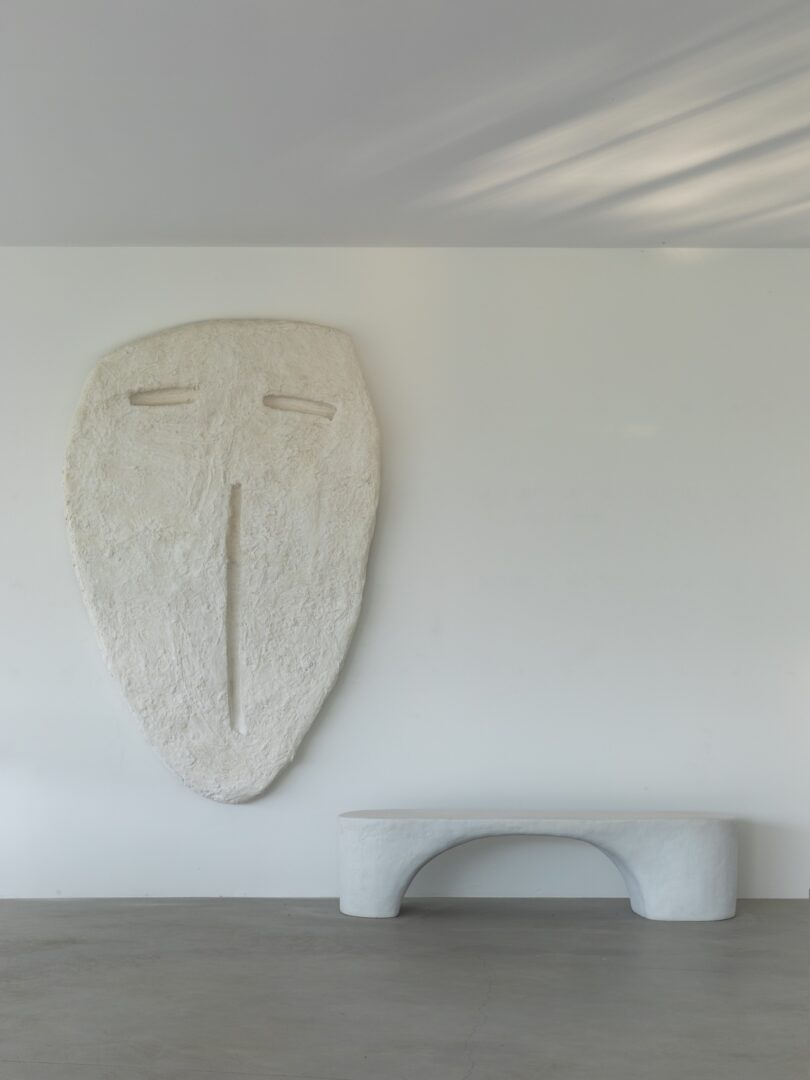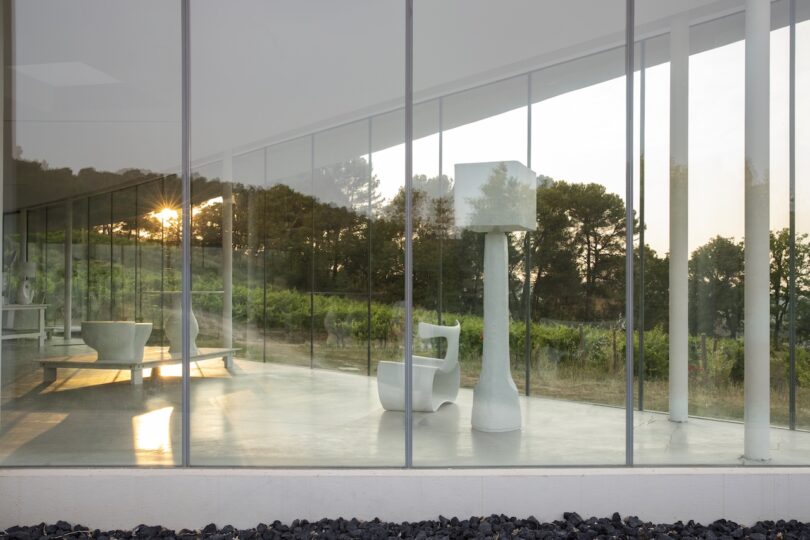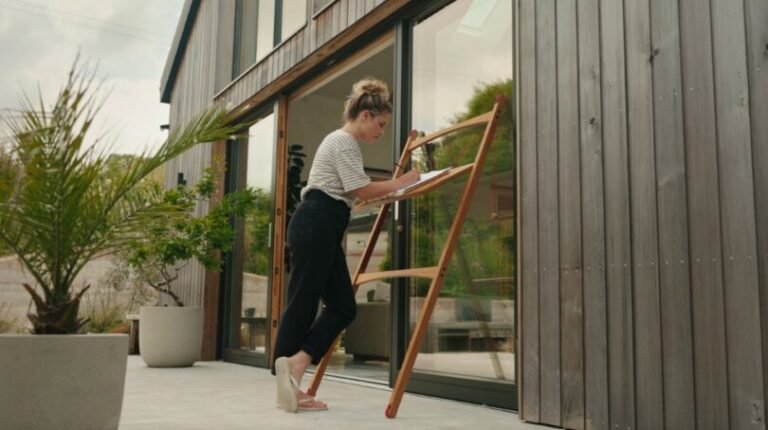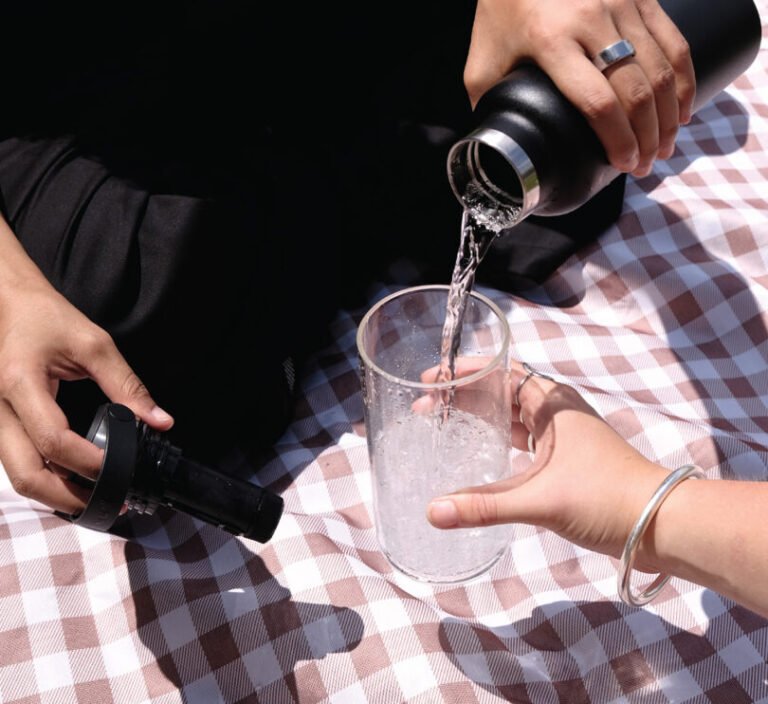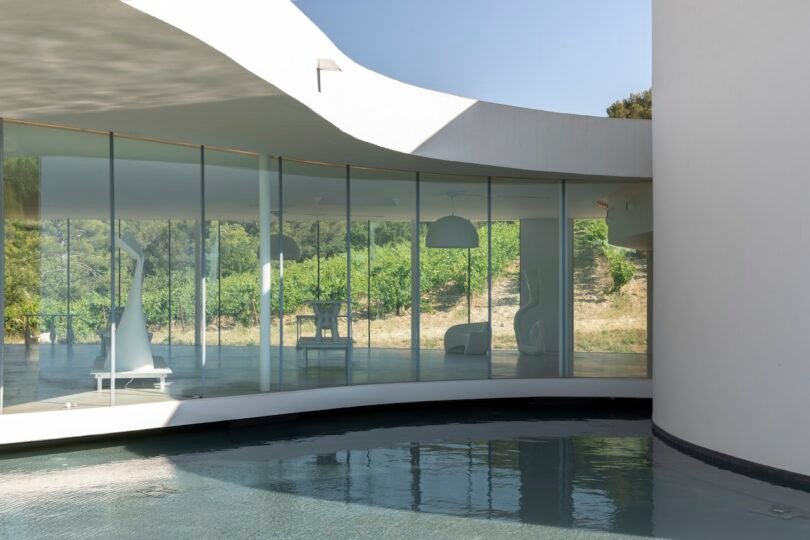
When a New York sculpture studio transplants itself to Oscar Niemeyer’s crystalline pavilion in the hills of Provence at Château La Coste, the resulting collision reveals something fundamental about how luxury furniture inhabits the space between art object and functional form. RALPH PUCCI’s exhibition PURE lives up to its title by presenting 13 designers’ work exclusively in white plasterglass, stripping away the distractions of color and patina to force attention toward what remains: the articulation of volume, the trace of fingers in material, and the relationship between hand and form that defines sculptural furniture at its highest expression.
This proprietary composite maintains the chalky, light-absorbing surface of plaster while eliminating its inherent fragility. The material preserves every mark from the original sculpting process, fingerprints and tool marks becoming permanent calligraphy that documents the maker’s hand. Unlike bronze casting, which can erase evidence of touch through patination and finishing, or polished resins that render surfaces anonymous, plasterglass holds visible tension between the gestural and the permanent. When Patrick Naggar’s fluid forms or Eric Schmitt’s more geometric compositions emerge in this material, viewers confront not finished products but arrested moments in a making process.
Pucci says of the show: “I first met Paddy McKillen by chance when my son Michael and I shared a taxi from the airport with him. We began chatting and our mutual esteem for each other’s work quickly became apparent, and the idea for a RALPH PUCCI show was ignited. I have always celebrated art in all its forms – whether that is in music, painting, photography, dance, sculpture, architecture – and this show is an exciting opportunity to bring that together. Château La Coste is so well respected on a global level as a leading arts destination and it’s exciting that Paddy has chosen to spotlight us and contemporary design in this inspiring environment.”
The chromatic restraint carries deeper implications than mere aesthetic preference. By presenting tables, seating, and lighting fixtures in this monochrome palette, Pucci collapses the boundary between furniture showroom and sculpture exhibition. Alexandre Logé’s designs sit beside Vladimir Kagan’s earlier experiments in biomorphic form, Xavier Lust’s folded metal translates into plaster’s different expression.
While many galleries source work from external fabricators or commission limited editions from established manufacturers, Pucci’s integration of workshop and showroom echoes earlier moments in decorative arts history when makers and merchants occupied the same space. The live sculpting demonstrations during the exhibition extend this philosophy, making process visible rather than mystified.
For more information on PURE by RALPH PUCCI, please visit ralphpucci.com.
Photography by Antoine Bootz.
